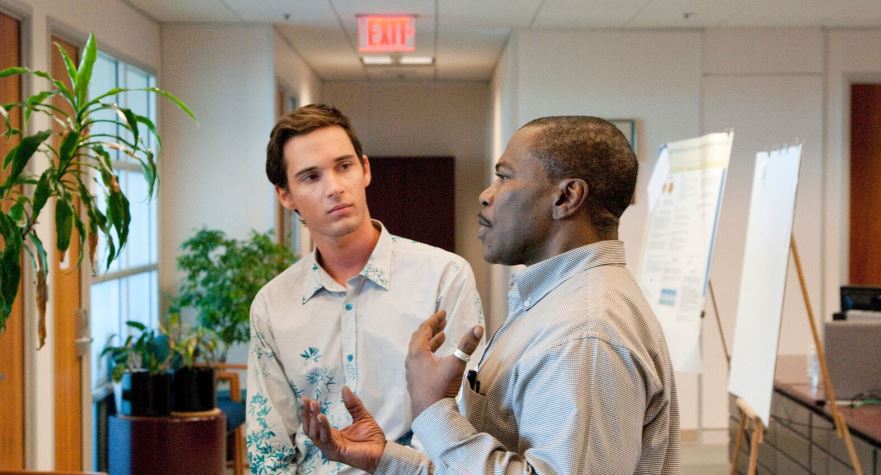Sociology
What is Sociology?
LMU's Sociology major helps students develop the intellectual skills to examine and understand the patterns of relationships that form the foundation of society. At its basis, sociology is concerned with the causes and consequences of individual participation in groups.
Social units such as families, neighborhoods, athletic teams, political parties, and ethnic groups make it possible for people to develop networks of interaction, meaning, and identity. These networks in turn provide the framework for a collective basis for stability, conflict, and change within society.
The Sociology major provides essential training in an increasingly complex world for students to understand the ways in which these frameworks both limit, and make possible, human choice and opportunity.
What do Sociology majors do?
Sociology majors explore the social and cultural influences on human behavior, the dynamics of interaction, relationships within society, and social institutions and social change in a global context. Students explore areas of study such as deviance and control, social inequality, social structure, culture and process, family and life cycle, and globalization.
Sociology majors learn the processes and structures that establish the underlying regularities of social life. They explore the ways in which social life is continually reconstructed through opposition and deviance. They learn the significance of cultural differences in traditional and modern societies, the origin and development of theoretical ideas that inform contemporary sociological inquiry, and the basic methodological and statistical strategies used in contemporary sociology.
Is this major right for you?
You might be a Sociology major if you:
- Have diverse interests
- Enjoy examining behavior
- Are fascinated by the structure of social life
- Enjoy community participation
- Are analytical
About our faculty
Our faculty members are experts in a diverse range of topics such as crime, the judicial system, political sociology, gender, race, class, immigration, urban sociology, medical sociology, the sociology of emotions, alternative dispute resolution, and deviance and mass media.
Faculty members present research at conferences, participate in associations, earn fellowships, and write for publications such as the International Journal of Sociology and Public Policy and the Journal of Sport & Social Issues. Faculty members are authors of books such as Making Settlement Work: An Examination of the Work of Judicial Mediators and Imperial Citizens: Koreans and Race from Seoul to L.A.
About our students and graduates
Our students experience community dynamics by offering their services to social agencies. Our students also participate in the Sociology Society, which helps put on events for students making plans for their professional lives or graduate school.
LMU students majoring or minoring in Sociology will be prepared to participate in a wide variety of occupations. Recent graduates hold jobs in corporate sales, public administration, community and social services, career development, and advertising. Other graduates have earned advanced degrees in fields such as education, law, and sociology.
